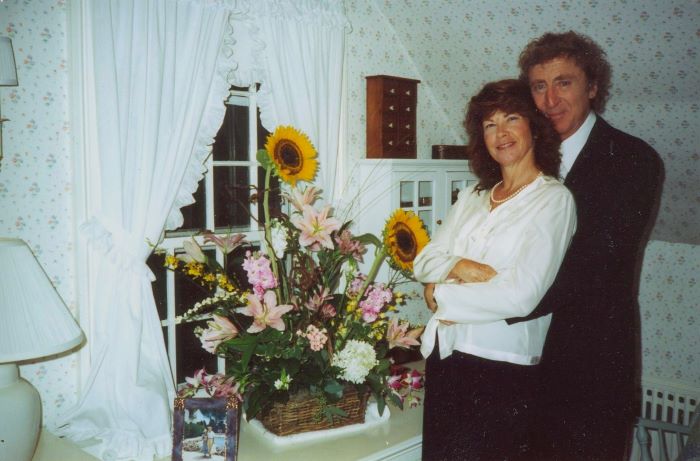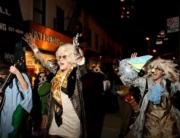Sometimes a single moment is all it takes to launch a chapter of one’s life. The late Gene Wilder experienced that moment many times. First, it was in 1963, when acting opposite Anne Bancroft in the play Mother Courage and Her Children led to him meeting her then-boyfriend, and his future collaborator, Mel Brooks. Then before working with Brooks on The Producers, he made his film debut in 1967’s Bonnie and Clyde, the landmark crime movie that helped kick off the New Hollywood movement and brought forth a new, more innovative generation of filmmakers. Decades later, while doing research for his role in See No Evil, Hear No Evil, he met with a consultant who would become his fourth and final wife, Karen.
There was an empathic heart at the center of Wilder’s actions and, by extension, his movie performances. Regardless of whether the films he starred in were good or bad, Wilder often succeeded at getting you on his side and making each character feel unique, be they meek, whimsical, or dangerously eccentric. Remembering Gene Wilder, the new documentary about his film career, certainly keeps that heart front and center. Yet compared to the actor’s proficiency for keeping moviegoers on their toes or making them double over in laughter, it could afford to take a few more risks in its presentation.
Not that the profile isn’t shy about singing the actor’s (and later writer-director) praises. By all accounts, audiences feel the same. We loved Wilder in Brooks’s genre-defining comedies The Producers, Blazing Saddles, and Young Frankenstein. And, of course, his portrayal of Willy Wonka and the Chocolate Factory’s titular candymaker remains the definitive Wonka portrayal. The list of collaborators/admirers here are small but impactful, from Brooks to Willy Wonka’s Charlie Bucket actor Peter Ostrum to The World’s Greatest Lover co-star Carol Kane to Turner Classic Movies host Ben Mankiewicz. All have good things to say about Wilder as they guide us through a condensed timeline of the actor’s greatest hits, even if they tend to frame some of his critical bombs (see the aforementioned See No Evil, Hear No Evil) in a rosier light.
However, director Ron Frank and writer Glen Kirschbaum don’t really innovate the documentary formula with their subject matter. Instead, they trace a rather straight line through the early Wilder films, with personal details thrown in small bursts. But they all come back to that idea of Wilder holding in a ball of wild comedic energy that could explode at any time. You saw it in Leo Bloom’s Odd Couple dynamic with Zero Mostel or Wonka’s ability to keep everyone guessing his true intentions and inner madness. His humor was based not on punchlines but performance, as Wilder explains—via audiobook narrations from his autobiography—what he learned from the great Charlie Chaplin films: “If the physical thing you’re doing is funny, you don’t have to act funny while doing it.” And when it worked, it worked.
Only sporadically does the film hint at more to Wilder’s methodology. Flashbacks to his childhood reveal a boy who, traumatized by the idea of arguing with his sick mother, struggled to let his own anger out. His later years were defined by similar tragedies, from the loss of wife Gilda Radner to cancer to his own struggle with Alzheimer’s. His Jewish background (Wilder’s real name was Jerome Silberman) feels somewhat underplayed, and his first two marriages are omitted altogether.
What the film gets right, thankfully, is Wilder’s love of life itself. This is felt in the actor’s narration and archived footage that details his approach to developing characters and working with co-stars, all while demonstrating a warmth his collaborators remember to this day. As one interviewee points out, Wilder, like his directorial partner Brooks, was “not afraid of failure” and would take chances to push a movie beyond what was expected.
It’s not just that Gene Wilder starred in some of the best comedies ever made that made him such a beloved movie star. It’s that Wilder elevated his comedy persona into someone audiences from all walks of life could relate to, no matter the genre. For all his struggles, the man made his life on-screen feel like “pure imagination,” and that type of charm never dies out.







Loved it!! Gene was a unique force. Thanks for presenting this glimpse into his comedic genius .
He was one of my favorite actors. My favorite movies with him in it was “Young Frankenstein” and “Blazing Saddles”.
Jeremy Allen White should play Gene Wilder in a Gene Wilder biopic!!